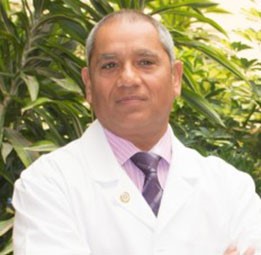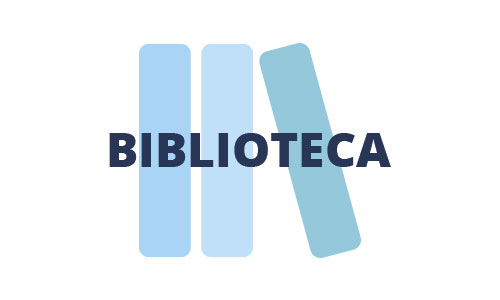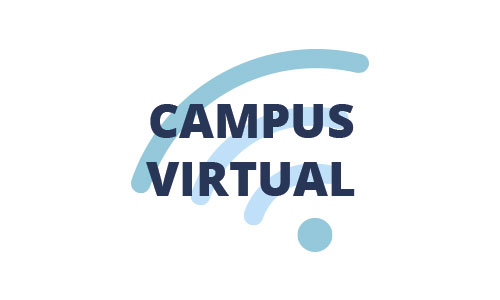CV Zafaruddin Khan

Zafaruddin Khan Fatima
Profesor Contratado Doctor
Tel: 952131615 E-mail: zkhan@uma.es
Despacho: Centro de Investigaciones Médico Sanitarias (CIMES)
BREVE CURRÍCULUM:
Zafaruddin Khan, M.S., Ph.D.
Profesor Contratado Doctor
Department of Medicine, Faculty of Medicine
Director of laboratory of Neurobiology and of Memorylab Malaga
Centro de Investigaciones Médico Sanitarias (CIMES)
Phone: 95 213 7279
Email: zkhan@uma.es
Laboratory Address
Laboratory of Neurobiology
Centro de Investigaciones Médico Sanitaria (CIMES)
Universidad de Málaga, Campus Teatinos
C/ Marqués de Beccaria, 3, 29010 Málaga, Spain
Email: memorylabmalaga@uma.es
Research Interests
Cognitive neuroscience, Memory formation, Recovery of memory deficits
Research Activity
In our laboratory, we want to understand how new experiences are transformed into stable and long-lasting memory and what goes awry in memory system that causes memory deficits. A search for the remedy against memory deficits is also an ongoing research activity. Several advanced behavioral, molecular and cellular techniques are used to dissect out the biological events that contribute to memory formation and memory deficits. We discovered that a gene corresponding to regulator of G protein signaling 14 of 414 amino acids (RGS14414) protein was able to induce memory enhancement and rescue episodic (recognition, spatial and temporal) memory deficits in rodent models. On the other hand, our laboratory is also engaged in other studies to identify potential targets for the treatment of memory deficits. Considering that memory is processed through interconnected brain circuits that are formed by the participation of distinct brain areas, and that memory deficits occur as a consequence of reduced activity within these circuits, we hypothesized that a revival in activity of these interconnected networks could restore memory. Our studies suggest that recovery of memory relies more heavily on the activation of brain circuits and the activation of one of the brain areas of interconnected brain circuits is sufficient to restore activity of these circuits and rescue memory deficits in memory-deficient animal models of aging and Alzheimer´s disease. This finding represents an important milestone in our understanding of how the function of a specific memory circuit can be restored. Furthermore, we found that activation of 14-3-3ζ-BDNF pathway induces synaptic structural plasticity and facilitates memory enhancement, and that this pathway is involved in the maintenance of synaptic vigor and the sustenance of memory functions. A sustained activity in the 14-3-3ζ–BDNF pathway could thus arrest the deterioration of neuronal networks and prevent memory deficits observed in aging and many neurological diseases
Selected Publications
ORCID ID: https://orcid.org/0000-0003-0742-399X
- López-Aranda MF, López-Téllez JF, Navarro-Lobato I, Masmudi-Martín M, Gutierrez A, Khan ZU (2009) Role of layer 6 of V2 visual cortex in object recognition memory. Science 325: 87-89.
- López-Téllez JF, López-Aranda MF, Navarro-Lobato I, Masmudi-Martín M, Martín-Montañez E, Blanco E, Khan ZU (2010) Prefrontal inositol tri-phospate is molecular correlate of working memory in non-human primates. Journal of Neuroscience 30(8): 3067–3071.
- Khan ZU, Muly EC (2011) Molecular mechanisms of working memory. Behavioral Brain Research 219(2): 329-41.
- Khan ZU, Martín-Montañez E, Baxter MG (2011) Visual perception and memory systems: from cortex to medial temporal lobe. Cellular and Molecular Life Sciences 68(10): 1737-54.
- Khan ZU, Martin-Montañez E, Muly EC (2013) Schizophrenia: Causes and treatments. Current Pharmaceutical Design 19(36): 6451-61.
- Khan ZU, Muly EC (2014) Molecular Basis of memory. Editor of a serial Book of Elsevier editorial. Vol. 122. Academic press. Hardcover ISBN. 9780124201705 and eBook ISBN. 9780124202009. (BOOK)
- Masmudi-Martín M, Navarro-Lobato I, López-Aranda MF, Delgado G, Martín-Montañez E, Quiros-Ortega ME, Carretero-Rey M, Narváez L, Garcia-Garrido MF, Posadas S, López-Téllez JF, Blanco E, Jiménez-Recuerda I, Granados-Durán P, Paez-Rueda J, López JC, Khan ZU (2019) RGS14 414 treatment induces memory enhancement and rescues episodic memory deficits. FASEB Journal 33(11): 11804-11820.
- Masmudi-Martín M, Navarro-Lobato I, López-Aranda MF, Browning PGF, Simón AM, López-Téllez JF, Jiménez-Recuerda I, Martín-Montañez E, Pérez-Mediavilla A, Frechilla D, Baxter MG, Khan ZU (2020) Reversal of object recognition memory deficit in perirhinal cortex-lesioned rats and primates and in rodent models of aging and alzheimer's disease. Neuroscience 448: 287-298.
- Navarro-Lobato I, Masmudi-Martín M, Quiros-Ortega ME, Gaona-Romero C, Carretero-Rey M, Blanes CR, Khan ZU (2021) 14-3-3ζ is crucial for the conversion of labile short-term object recognition memory into long-term memory. Journal of Neuroscience Research. in press.






